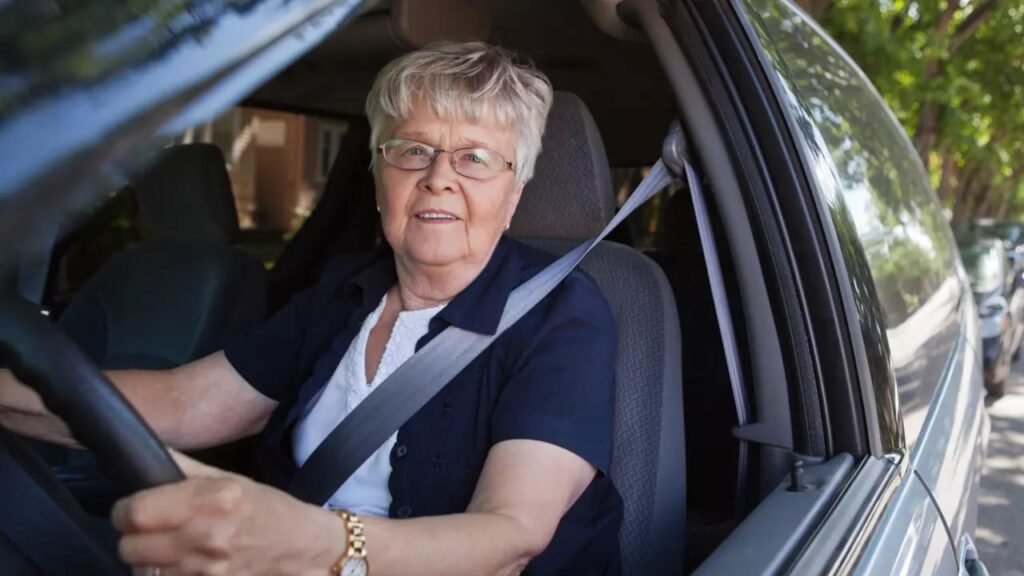For many elderly drivers in the UK, holding a driving licence is not just about getting from one place to another. It represents freedom, independence, and the ability to stay connected with family and friends. However, starting from 1 September 2025, new rules will come into effect for drivers aged 70 and above. These changes are designed to improve road safety while ensuring that older drivers can continue to enjoy their independence without unnecessary restrictions.
What Is Changing from September 2025
From September 2025, elderly drivers in the UK will need to renew their licences every three years instead of the current five-year period. Along with the renewal, drivers will need to submit a medical self-declaration to confirm that they are fit to drive. In some cases, the DVLA may also require an eyesight test, especially if there are declared vision concerns or if the driver reports changes to their eyesight. These updates aim to make the renewal process more focused on health and safety while keeping it simple and accessible.
Why the New Rules Are Being Introduced
The decision to update the driving licence rules for over-70s comes after extensive consultation with road safety experts, health professionals, and the public. With age, factors like slower reaction times, reduced mobility, and vision issues can affect driving ability. These rules are intended to identify potential risks early, allowing drivers to address health concerns while still maintaining their right to drive. By shortening the renewal cycle and including medical declarations, the government hopes to create safer roads for everyone without unfairly targeting responsible senior drivers.
Who Will Be Affected by the Changes

These new regulations apply to anyone who turns 70 on or after 1 September 2025 and to those already over 70 whose next licence renewal falls after that date. Drivers of any age who have medical conditions that could affect their driving must also follow the updated rules and inform the DVLA about their health status. For those under 70 without any health concerns, the renewal system will remain the same as before.
How to Renew Your Licence
Renewing your driving licence under the new system will be simple and flexible. The quickest way is through the DVLA’s online portal, where you can complete the process by entering your current licence details, National Insurance number, and, if applicable, your UK passport details. For those who prefer traditional methods, a paper renewal form will still be available for postal applications. Every renewal will include a medical self-declaration, and if required, proof of an eyesight test must also be submitted. Drivers should ensure they complete their renewal before the licence expires to avoid legal and insurance complications.
How These Rules Will Impact Senior Drivers
While the updated rules require more frequent renewals and additional steps like medical checks, they are unlikely to cause major inconvenience for most elderly drivers. In fact, many seniors may welcome the process as a way to ensure they are safe and fit to drive. However, drivers with certain health conditions, such as diabetes, previous strokes, or cognitive issues, should consult their doctors before submitting the medical declaration. Failing to report a notifiable medical condition could result in fines of up to £1,000 and even the invalidation of insurance coverage.
Benefits of the Updated Licence Rules
The revised driving licence system brings several advantages for older drivers and the wider community. Regular health checks will help detect potential medical issues earlier, ensuring timely treatment and safer driving. Families of elderly drivers may also feel reassured, knowing their loved ones are undergoing regular fitness checks. Additionally, the rules bring the UK in line with international practices, promoting consistent safety standards across Europe.
Tips to Make the Renewal Process Smooth
To make the renewal process easier, drivers should ensure their address and contact details are always updated with the DVLA. Regular health and vision check-ups will also make it easier to complete the medical declaration confidently. Starting the renewal process early rather than waiting until the last moment can prevent unnecessary stress or delays. Keeping important documents, such as recent eyesight reports or medical records, on hand will also help ensure a smooth application process.
These changes are designed to keep elderly drivers on the road for as long as it is safe, providing a balance between independence and safety. By preparing in advance and staying informed, senior drivers can continue enjoying the freedom and confidence that comes with holding a valid UK driving licence.

